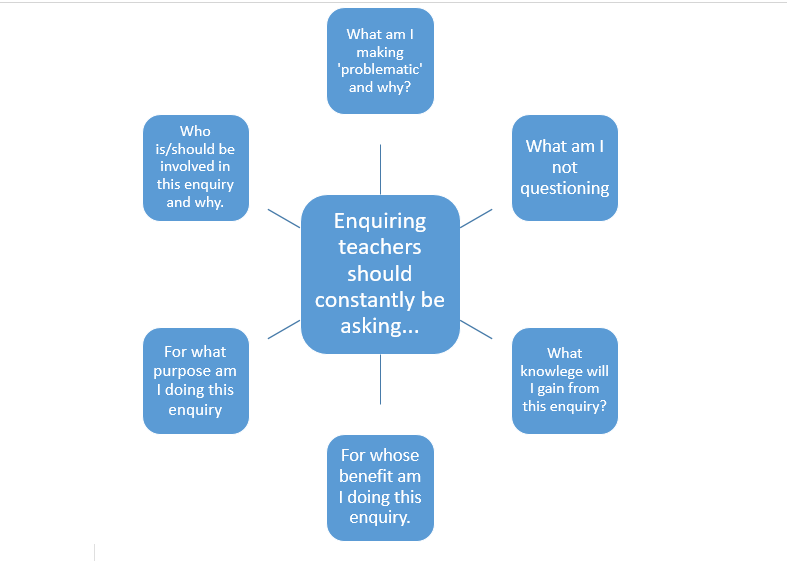
When I am think about my own Pactitioner Enquiry, my focus seems to change every day .I have lots of ideas but being a Scientist I feel whatever the area I choose should be in line with the whole school improvement and also should have positive impact on my learners. I am thinking to have a meeting with school CPD co-ordinator to discuss my ideas and approach about practitioner enquiry.
What’s become apparent to me, after doing this week’s reading, is that an enquiry, although conducted in the classroom and of personal interest to the practitioner, should also be aligned with both the school and national priorities. I can see, once these connections are made at the start of the process, how this will engage others in the learning community and allow them to see its value.
At the center of each of these potential enquiries from all of us is the learner and their experience, —–how we can help learners to achieve their potential. However, I think the clear link to school improvement plans, to subject benchmarks, to HGIOS4 will help allow what we plan, do and ultimately improve, to be valued outside of each of our classrooms. The collaborative approach of the enquiry is really important, as we are sharing ideas and supporting each other during the process.
I like the step-by-step aspect and the clear questioning given in each of the Action Research approach and Fearghal Kelly’s An Enquiry Process make. In terms of adopting an approach to going about Enquiry, I probably feel most comfortable with Fearghal Kelly’s Enquiry Process, simply because of the level of detail in it. Perhaps in time, I will grow more confident in relying more on some of the ones taking a visual approach, such as the Action Research cycle or the Spiral of Enquiry as used in British Columbia.

